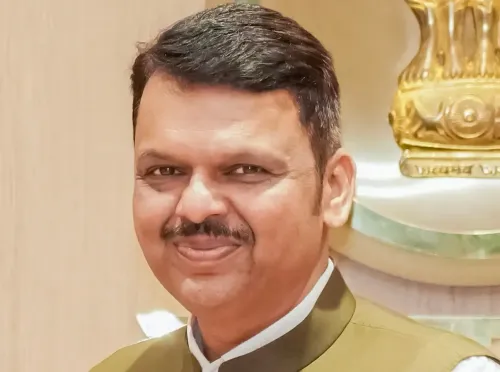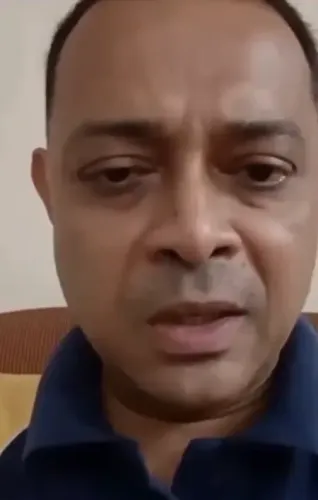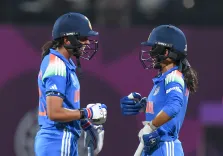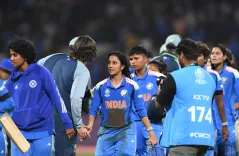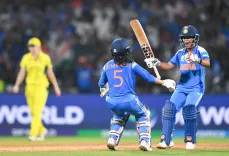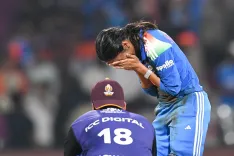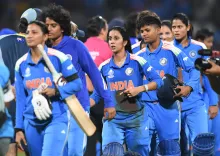Will the PSA be 'misused' by Left Wing Extremists, asks Maha CM?
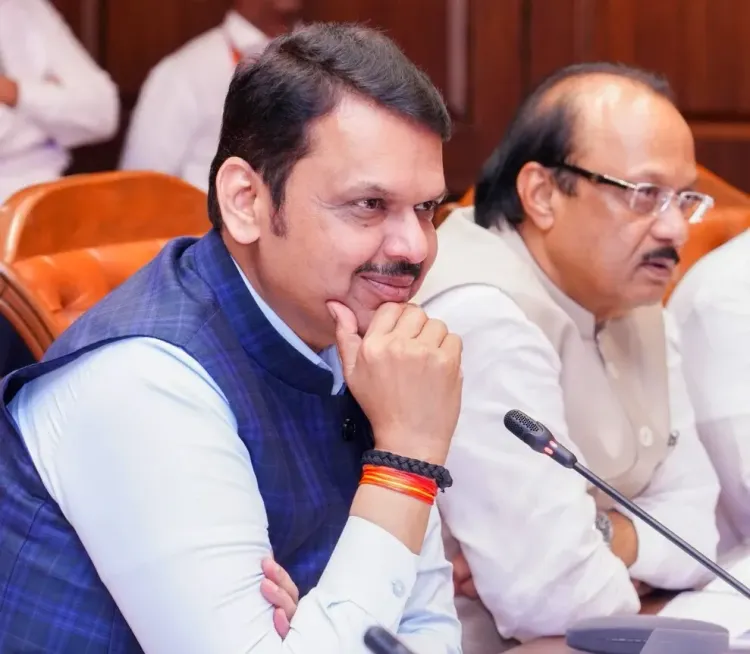
Synopsis
Key Takeaways
- Maharashtra Special Public Security Act targets LWE organizations.
- About 64 such groups operate in Maharashtra.
- The law aims to protect the Constitution.
- Protests by individuals will not be suppressed.
- Concerns regarding potential misuse of the law remain.
Mumbai, July 10 (NationPress) Chief Minister Devendra Fadnavis addressed the state assembly, asserting that the Maharashtra Special Public Security Act will not be misused by groups engaging in Left Wing Extremism (LWE) within the state.
During his presentation of the bill, he noted that there are approximately 64 LWE organizations operating in Maharashtra. He clarified that this legislation is not directed against leftist ideology.
“The CPI (Maoist) party was prohibited in 2009 under the leadership of then Chief Minister of West Bengal, Buddhadeb Bhattacharya. This organization was banned through the UAPA due to acts of genocide, and we also maintain respect for Communist Party leaders. This law will not be enforced merely because protests are held by teachers or students. It targets organizations, not individuals,” he emphasized.
“The law must be interpreted in its entirety. If an organization seeks to harm the Constitution and its institutions, it will be prohibited,” the Chief Minister declared.
“In various regions of the country, armed groups inspired by Maoism or extreme leftist ideologies have clashed with constitutional frameworks. Thanks to the efforts of both central and state governments, Maoism is now being effectively addressed,” he stated.
He pointed out that four districts in Maharashtra were previously troubled by Maoism, but this issue is currently confined to just two talukas.
“Next year, even that will be eliminated. When armed Maoists are absent, groups that indirectly promote Maoist ideologies emerge. These organizations reject democracy and the Constitution of India. Maharashtra has 64 such organizations. This law will be deployed against them, ensuring it is not misused against any political or social group,” he assured.
In Andhra Pradesh, where this law is active, seven out of 19 banned organizations have been prohibited; Jharkhand has banned 14 out of 14, and Telangana has banned seven out of 29. Thus, Maharashtra leads with the most hardline leftist organizations in the nation.
“Documents have surfaced suggesting these groups intend to expand their influence in Mumbai, Pune, Nagpur, Nashik, Gadchiroli, Konkan, Amravati, and Beed,” the Chief Minister noted.
“There is some confusion among the populace regarding this law. Arrests can only occur if an individual is a member of a banned organization. While we can arrest someone for opposing the government, this law cannot be utilized to silence dissenting voices. This legislation is well-balanced and more effective than those in the other four states,” he said, stressing that it is not aimed at harassment but at those inciting unrest against the Constitution.
Shiv Sena legislator Bhaskar Jadhav remarked, “I participated in the joint select committee. Only three amendments were made in the bill; the government did not consider other suggestions we proposed. The Maharashtra government will be the ultimate authority. Four states passed this law, none of which were BJP-led; why haven’t the BJP-ruled states enacted similar laws?”
NCP SP legislator Jayant Patil stated, “We support dismantling the Maoist movement, and I have previously worked to combat it as Home Minister. Today, police claim it has urbanized, raising concerns that others may be wrongfully detained under the pretext of LWE. This law should not be misapplied. I refer to P. Chidambaram, who established PMLA and was the first to be charged under it.”
CPM legislator Vinod Nickole expressed, “As the only MLA from the Left Party, we respect the Constitution and the laws. In 2017, the Kisan Sabha of the Marxist Communist Party organized a farmers' march from Nashik. While anti-constitutional entities must be managed, actions against those protesting constitutionally should not be deemed illegal. The right to protest against injustice must not be stripped away via this bill. I oppose this bill as it is unconstitutional and prone to misuse.”
Congress legislator Nitin Raut voiced fears that this law might be leveraged against peaceful protestors for just causes.
“We believe this law could infringe upon freedom of speech. We worry that dissenters will be oppressed and imprisoned, similar to the arrests of writers, intellectuals, and activists in the Bhima Koregaon incident, where investigations found no evidence against them,” he remarked.
NCP SP legislator Rohit Pawar suggested it would be preferable for the bill to specifically mention Maoist organizations rather than broadly categorizing them as hardline leftists, casting doubt on its implications for leftist thinkers.
Shiv Sena UBT legislator Varun Sardesai noted that leftist organizations exist in every university and can become aggressive if students face injustice.
“If they organize a protest, will actions be taken according to legal provisions? Will those participating in a protest for justice face bans?” he queried.
Congress legislator Vishwajit Kadam asked, “Will action be taken against individuals who supported radical leftist organizations 10-15 years ago? The bill lacks provisions for unregistered organizations. How can they be regulated without victimizing innocent citizens?”



